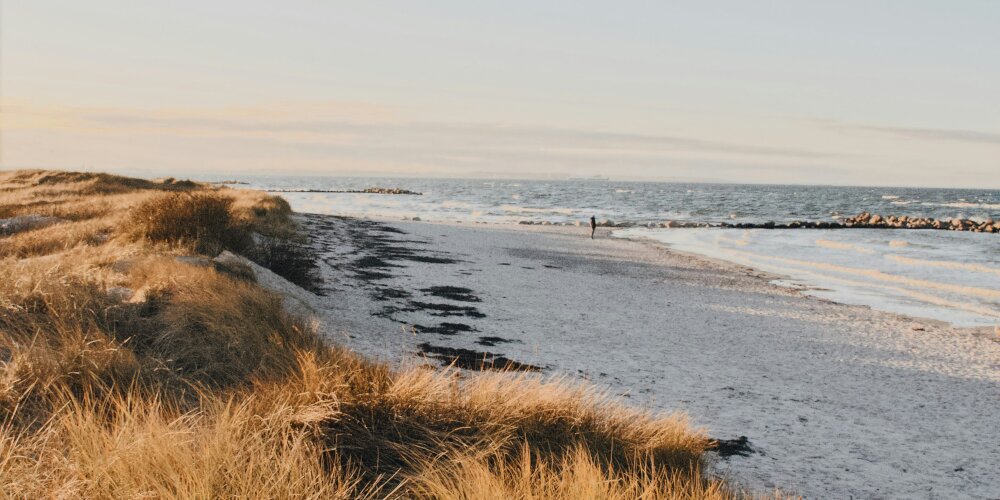Browse our services
Explore how Brookes Bell can help you
Find an expert
Meet our team, find and expert and connect
Contact us
Get in touch, we're here to help

Cargo ships are no longer allowed to discharge wastewater into the Baltic Sea (in Finnish territorial waters) following the implementation of a ban, which was initially passed by the Finnish parliament in December 2024.
The ban has come into effect following studies into the unique characteristics of the Baltic Sea. The Sea’s shallowness, low water turnover, and enclosed nature, make it particularly vulnerable to eutrophication and pollution.
Eutrophication is a process whereby bodies of water become overly enriched with specific nutrients - especially nitrogen and phosphorous. This can lead to the rapid growth of ‘algal blooms’ - which can block out sunlight from the seabed and dangerously deplete oxygen levels, harming biodiversity.
Support for a ban on wastewater discharge has been led by the Baltic Sea Action Group (BSAG) which released a study in June 2025 that highlighted the way in which sewage discharges are polluting the Baltic Sea.
Commenting on the BSAG study, Mirja Ikonen of the Finnish Transport and Communications Agency (Traficom), said:
“This study, commissioned by the Finnish Transport and Communications Agency Traficom, provided important additional information on the performance deficiencies of cargo ship effluent treatment facilities and supports the national discharge bans adopted at the turn of the year. We will use the findings of the study especially in our work to develop the international MARPOL regulation”.
Until this ban, cargo ships had been allowed to discharge their wastewater into the Baltic Sea with minimal restrictions. Cargo ships were able to discharge untreated sewage 22 kilometres from the nearest shore and treated sewage up to five kilometres from the nearest shore.
Whilst cargo ships do have equipment that can treat sewage, BSAG’s study found that this equipment tends to be poor at removing the nutrients that cause eutrophication. Furthermore, there were previously no restrictions on the discharge of grey water (e.g. shower or washing water).
The new ban prohibits either the discharge of sewage or wastewater from open-circuit scrubbers in Finnish territorial waters. Sulphur scrubbers are devices used by ships to reduce sulphur emissions from exhaust gases by injecting water into the exhaust gases. The scrubbing water produced by exhaust gas cleaning contains substances harmful to marine life, such as metals and organic compounds.
Further bans are on the way. These include:
Other countries are expected to follow Finland’s lead, with Sweden looking to ban discharges from scrubbers in mid 2025. A similar ban is also being explored by Denmark.
BSAG is now pushing for the wastewater discharge ban to be expanded to cover the entirety of the Baltic Sea. Pieta Jarva, Strategy Director at BSAG, said:
“The valuable and fragile ecosystems in our shallow coastal waters will benefit from the change in legislation. However, to be as effective as possible, and to avoid discharges of wastewater from ships anywhere in the Baltic Sea, the ban should be extended to the entire Baltic Sea.
The next step is to shift the focus to international cooperation and influence. HELCOM, the IMO and the European Union have an important role to play”.
With bans like the above coming into effect in a growing number of territorial waters, it’s more important than ever that you minimise or even eliminate pollution from your vessels.
Brookes Bell’s Master Mariners are well versed in the requirements of the MARPOL convention and can assist with; the prevention of pollution from ships by oil, procedures for the correct disposal of garbage, sewage and more.
For more maritime industry insights, news and information, read the Brookes Bell News and Knowledge Hub…
IMO Approves Net-Zero Regulations for Global Shipping Industry | Germany Licences First Maritime Recycling Facility | Novel Emissions Filtering & Carbon Capture Technology Demonstrated On At-Berth Ships